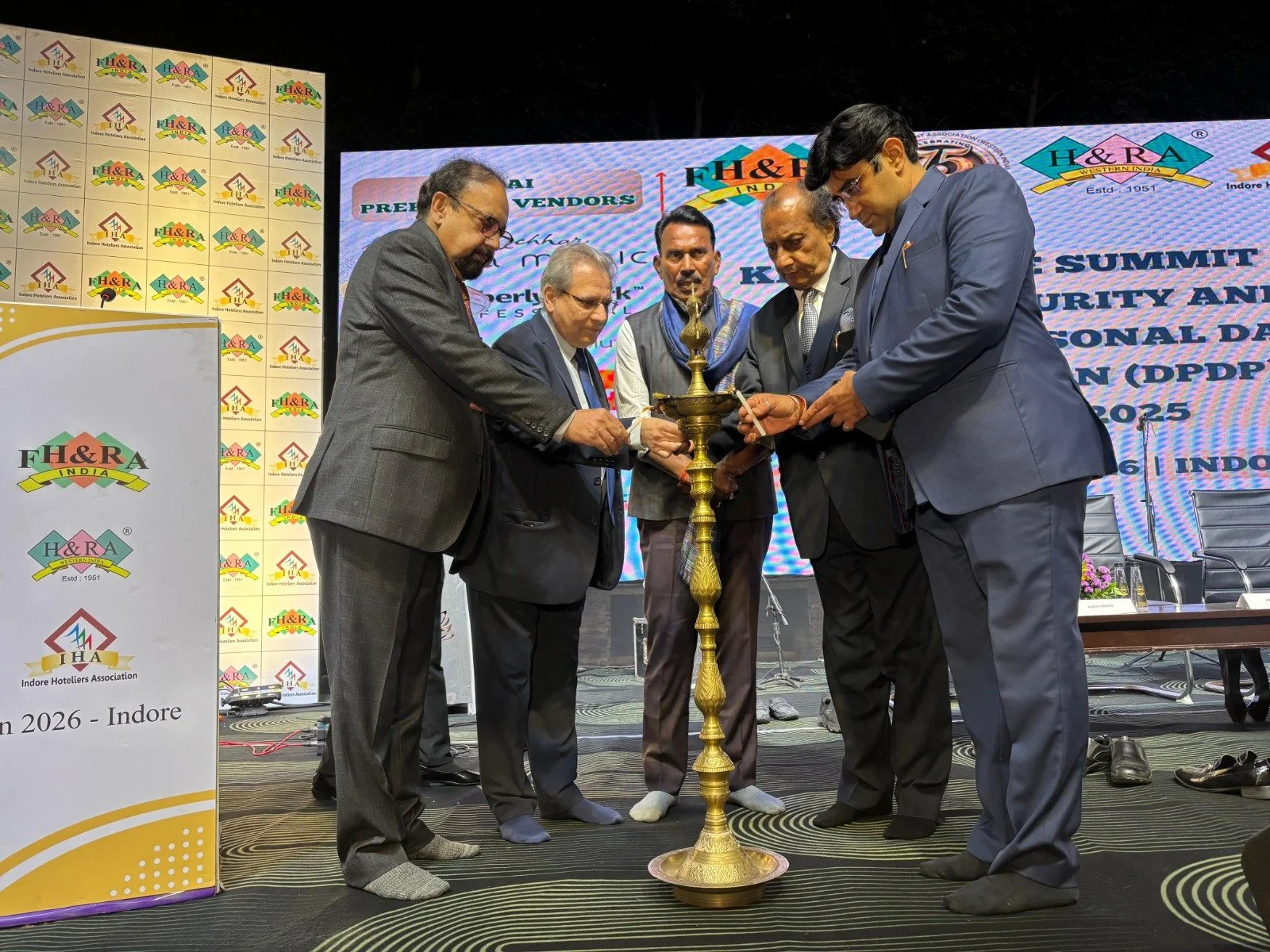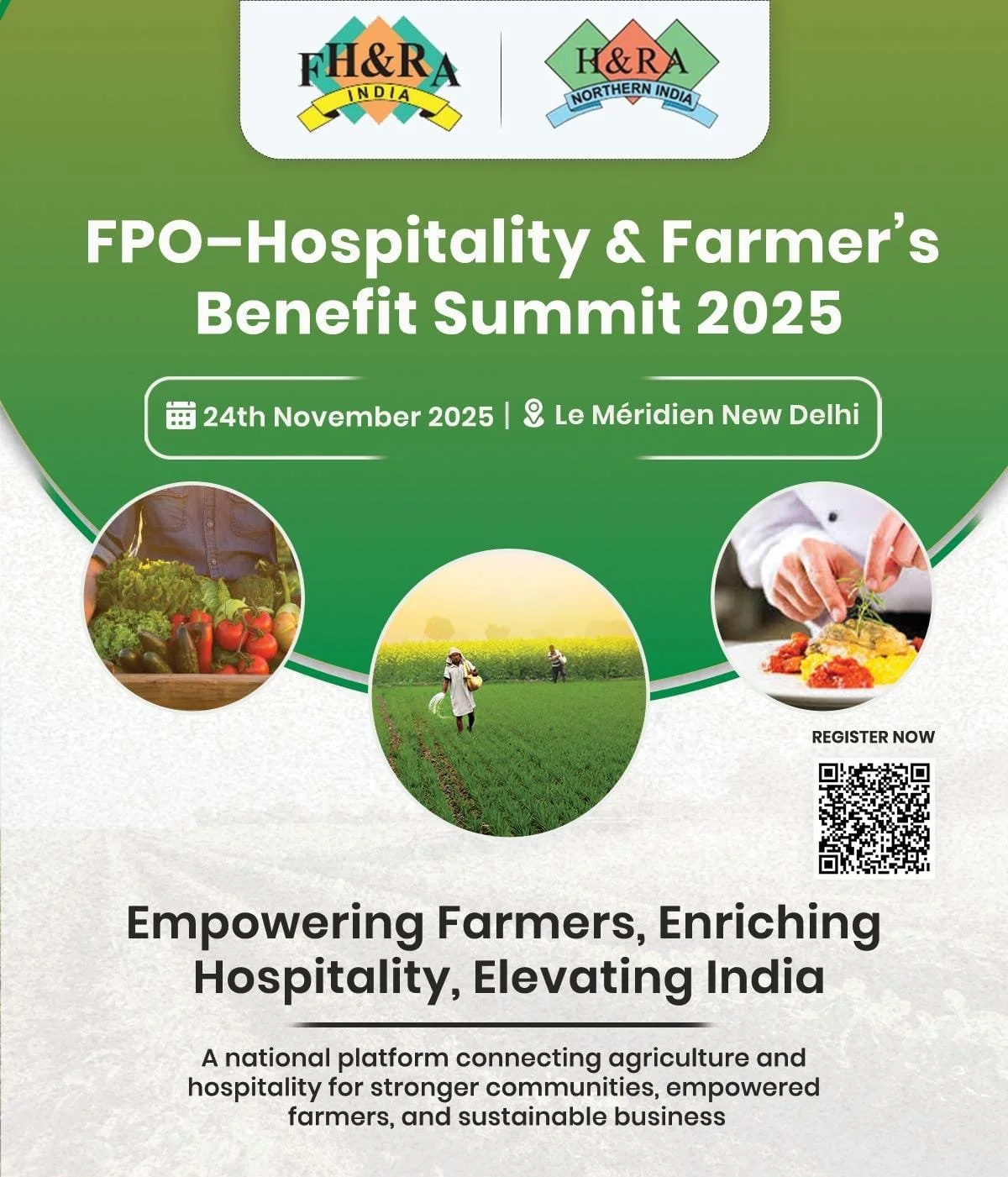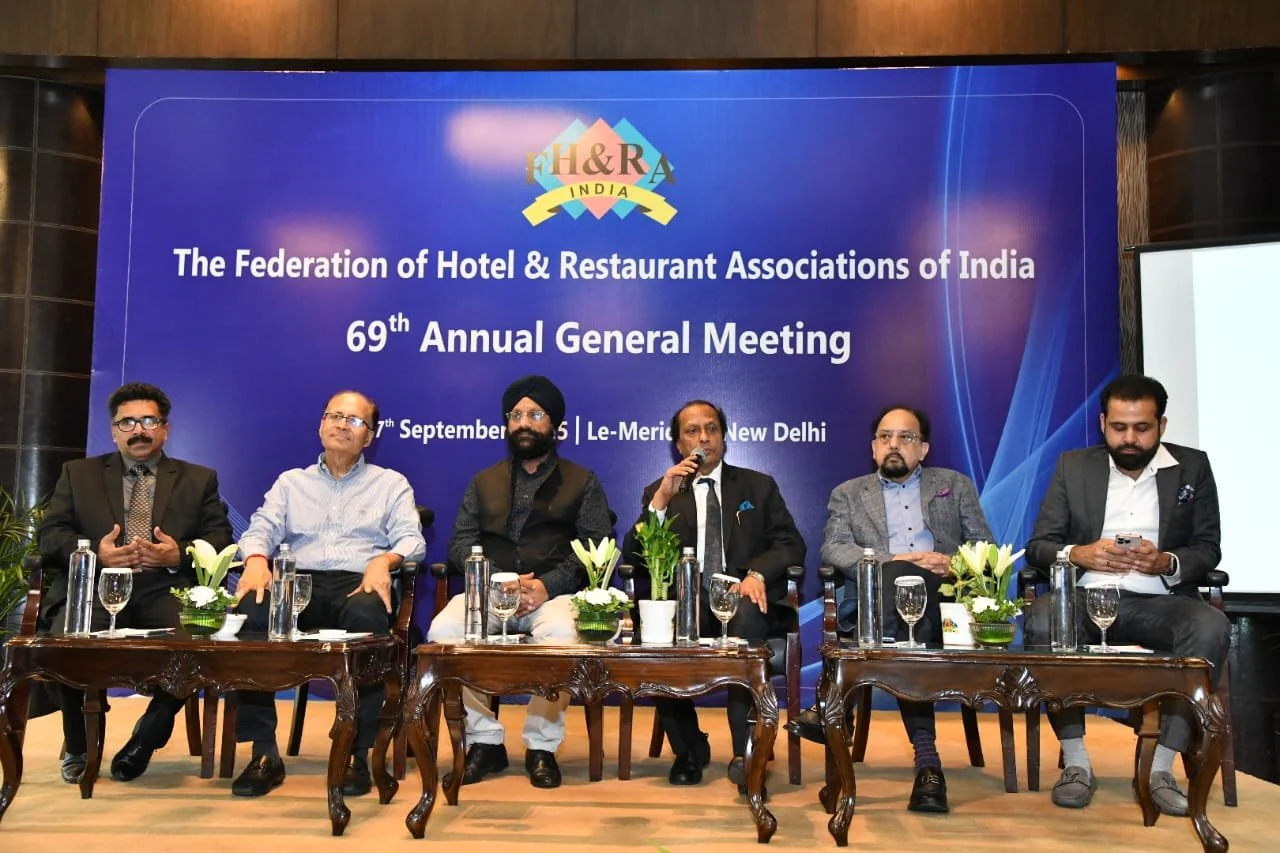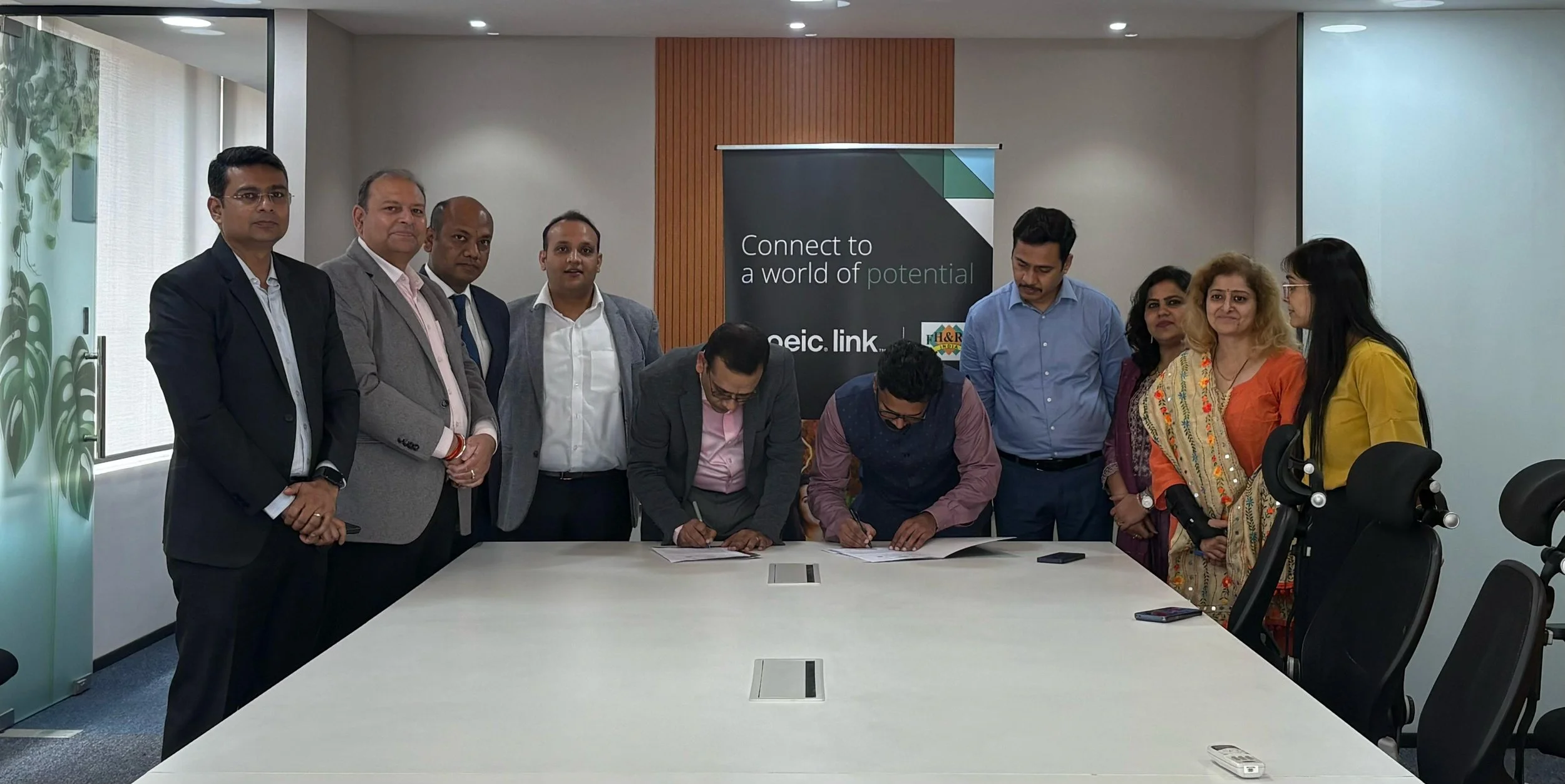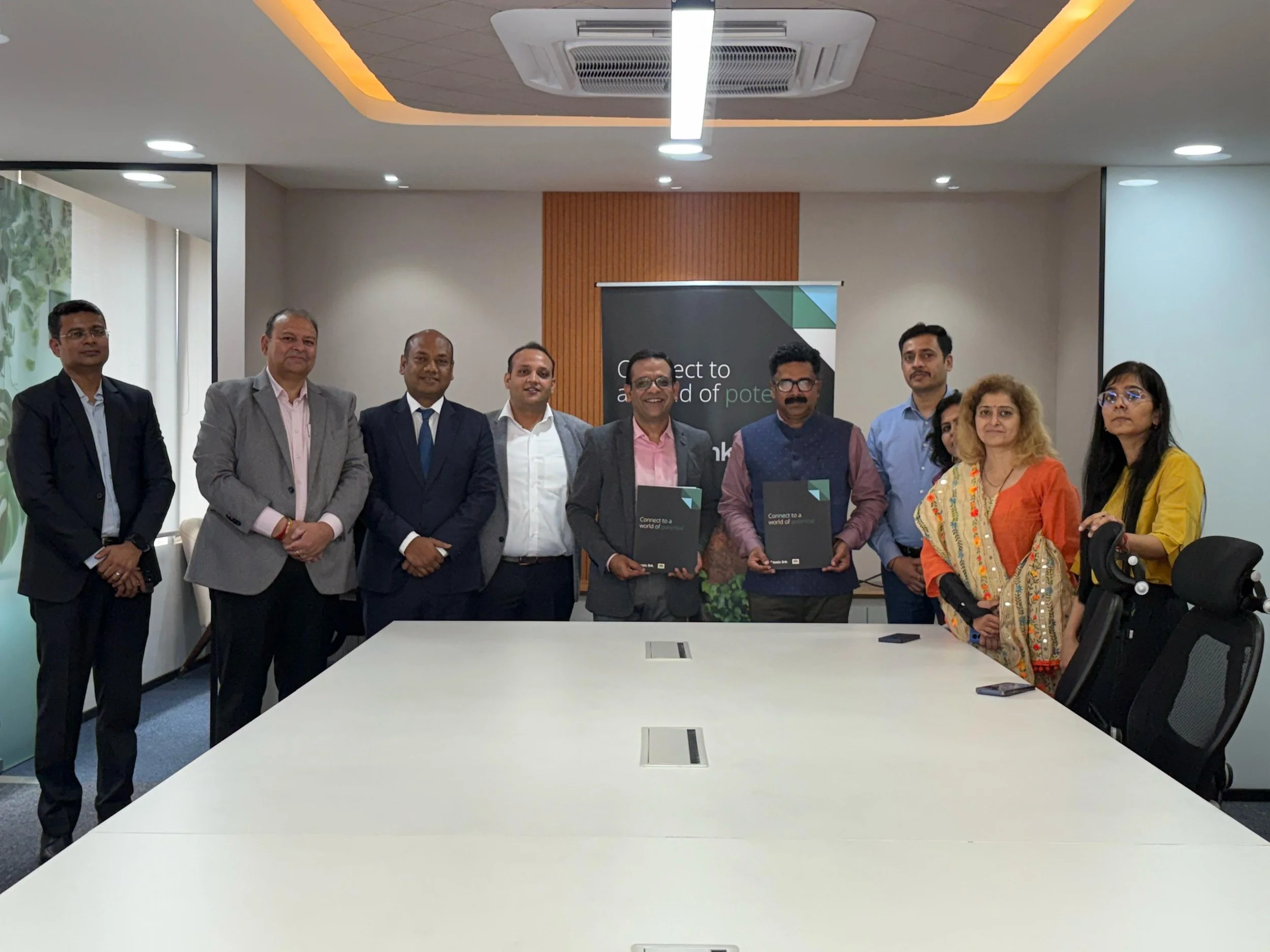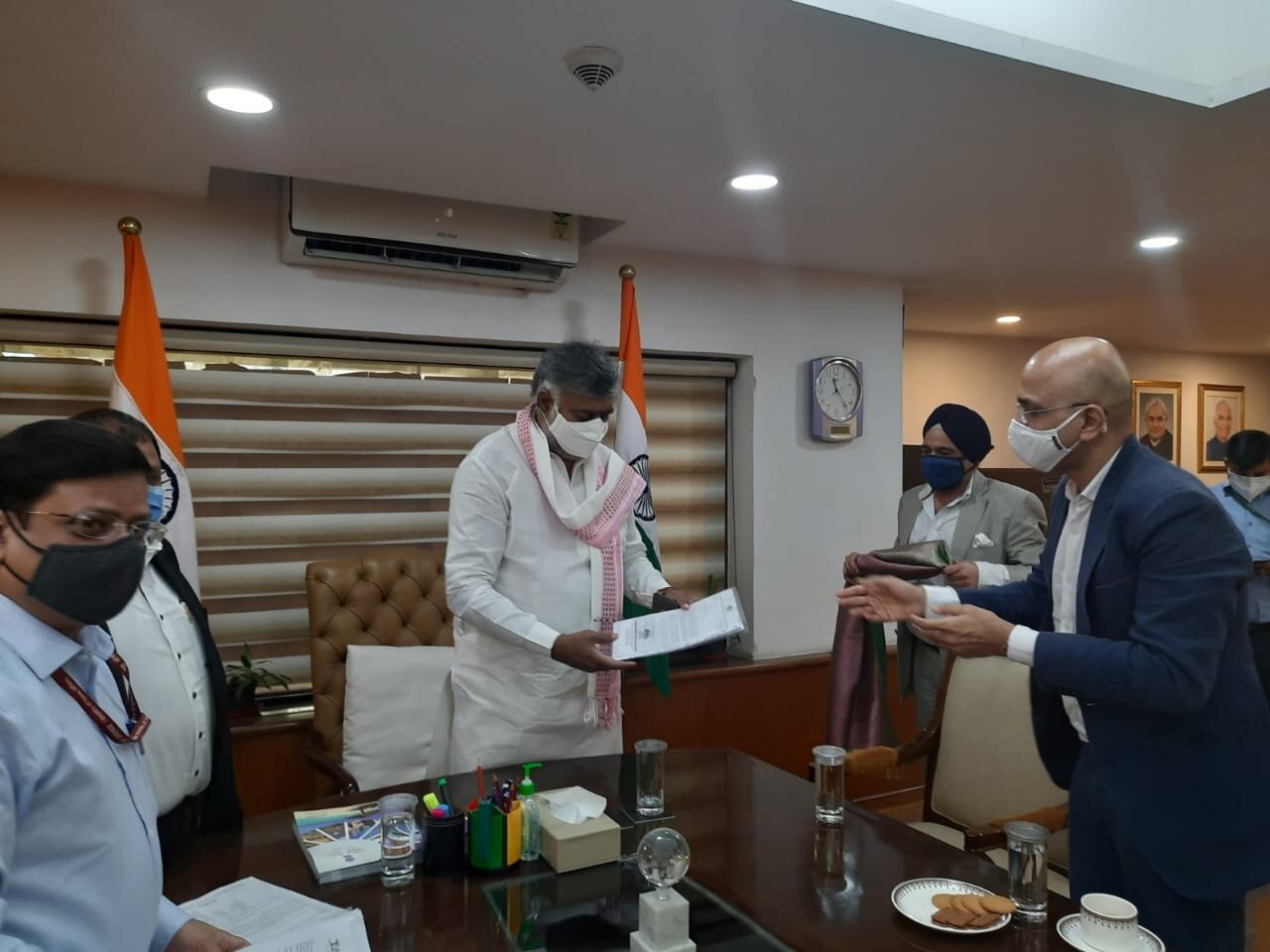FHRAI Concludes DPDP Rules 2025 Awareness Summit with Strong Emphasis on Data Protection and Cybersecurity
/New Delhi, January 2026: The Federation of Hotel and Restaurant Associations of India (FHRAI), in association with the Hotel and Restaurant Association Western India (HRAWI), successfully concluded the Industry Awareness Summit on the Digital Personal Data Protection Rules 2025 at Omni Residency, Indore. The Summit focused on building clarity, preparedness and sector specific understanding of India’s new data protection framework and its relevance for the hospitality industry.
The Summit was organised in the context of the Digital Personal Data Protection Rules 2025 notified under the Digital Personal Data Protection Act 2023, which mark a significant shift in India’s approach to data governance. The discussions highlighted how data protection has emerged as a core operational and strategic priority, particularly for the hospitality sector, which relies extensively on digital platforms and technology driven services for guest engagement, service delivery and business growth.
The Summit was graced by Mr. Tulsiram Silawat, Hon’ble Minister of Water Resources, Govt. of Madhya Pradesh, as Chief Guest. Industry leadership was represented by Mr. Surendra Kumar Jaiswal, President, FHRAI, Mr. Jimmy Shaw, President, HRAWI, Mr. Garish Oberoi, Hony. Secretary, FHRAI, and Mr. Sumit Suri, Executive Committee Member, HRAWI and President, Indore Hotel Association. Other dignitaries included Mr. K Syama Raju immediate Past President of FHRAI and Mr Pradeep Shetty Past President of FHRAI.
Dr Mohan Yadav, Chief Minister Madhya Pradesh, said in a video message, “Madhya Pradesh has immense possibilities in the hospitality industry. We are supporting the industry by promoting all forms of tourism such as forest, religious, cultural etc. We expect lot of new hotel projects in the state with up to 30 per cent subsidy on investments for large projects.”
Mr. Tulsiram Silawat, Minister of Water Resources, Madhya Pradesh, said, “The Madhya Pradesh government dedicated the year 2025 to industry policies. We can assure you that the state’s tourism and hospitality policy is among the best in the country today. I also feel these discussions on Digital Personal Data Protection will give a new dawn and direction to the industry. We are determined to support the hopes and aspirations of hospitality industry, which is also in line with Hon’ble Prime Minister Modi’s vision for development of tourism.”
Speaking on the outcomes of the Summit, Mr. Surendra Kumar Jaiswal, President, FHRAI, said, “The Digital Personal Data Protection Rules 2025 represent a critical milestone for India’s digital economy. For the hospitality sector, compliance is directly linked to guest trust and long-term sustainability. This Summit has enabled our members to clearly understand their responsibilities and take practical steps towards building robust data governance and compliance frameworks.”
Mr. Jaiswal further said, “Inspired by the vision of our Honourable Prime Minister, the association has undertaken several initiatives to support the growth of the industry, many of which have already begun to deliver positive results. The Delhi government has assured us of a single-window clearance system for all licences, along with third-party fire safety audits, which we have been advocating for long. FHRAI and HRANI have been regularly advocating for the removal of the requirement of the Eating House Licence by the Delhi Police. This has now been abolished, which is a great relief for hospitality establishments. We have also proposed the adoption of dry fogging systems across hotels and restaurants in Delhi as an alternative to anti-smog guns, and thankfully this is under consideration. In addition, we are encouraging hospitality establishments to procure directly from Farmers Producers Organization, ensuring that the benefits of tourism reach the farming community as well.”
Speaking on the practical implications for hospitality operators, Mr. Jimmy Shaw, President, HRAWI, said, “For hotels and restaurants, the DPDP Rules 2025 translate into day-to-day operational changes from front-desk processes and online reservations to vendor management and payment systems. The Summit has been particularly valuable in demystifying compliance and equipping establishments, especially small and mid-sized operators, with clarity on how to embed data protection into routine business operations without disrupting service delivery.”
As a key outcome, the Summit enhanced industry readiness by strengthening understanding of organisational obligations and data governance standards, improving preparedness for consent management and breach handling, and encouraging closer collaboration between industry and regulators. The Summit reaffirmed FHRAI’s commitment to supporting the hospitality sector in achieving smooth and effective implementation of the Digital Personal Data Protection Rules 2025 while reinforcing transparency, accountability and consumer confidence.
Mr Garish Oberoi, Hony. Secretary, FHRAI presented the vote of thanks and expressed special gratitude to the Government of Madhya Pradesh during the inaugural session, adding, “With such a progressive tourism policy in place, we are extremely optimistic about the future of hospitality and tourism in the state.”
Mr. Sumit Suri, Executive Committee Member, HRAWI, and President, Indore Hotel Association, said, “Madhya Pradesh is emerging as a key state for the industry, supported by its attractive tourism policies, including subsidies for new hotel projects. We appreciate and thank the state government for consistently being cooperative and supportive of our industry.”
The deliberations provided participants with clear insights into the scope and applicability of the DPDP Rules, including consent and notice requirements, obligations of data fiduciaries and processors, protection of children’s data, breach preparedness and reporting, data principal rights, and compliance requirements for significant data fiduciaries. The discussions also addressed the hospitality sector’s extensive use of online booking systems, property management platforms, loyalty programmes, payment gateways, AI enabled guest services and third-party aggregators, all of which involve processing of sensitive personal data.

